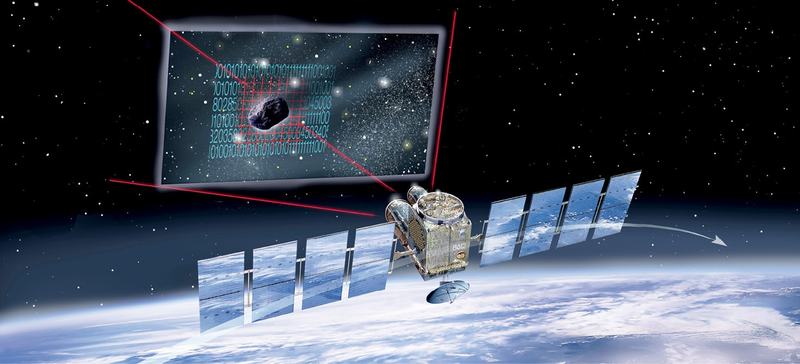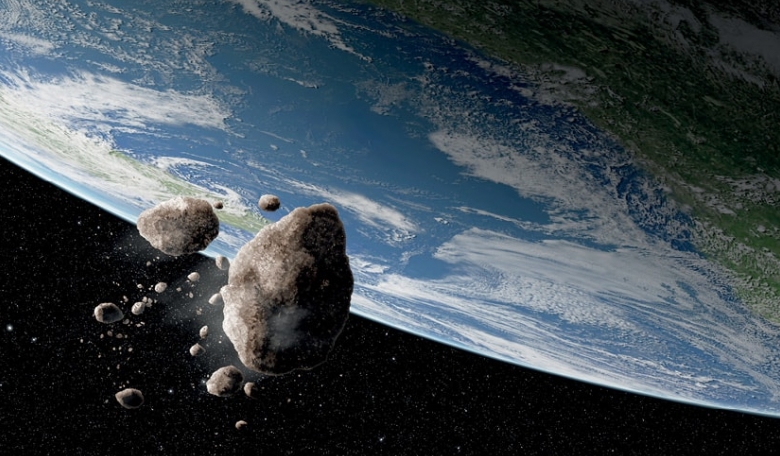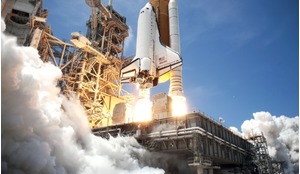The future world of space will not be like it has been up to now. Activities will include a much wider range of operations, many different types of space applications, and the regulatory and ‘policing’ mechanisms will be considerably different. The problem is how does regulatory regime keep up? How does global space governance keep up with space technology invention and the disruptive activities of NewSpace companies and constant entrepreneurial innovation?
There was a time in human existence when change took millions of years. Then it took thousands of years, followed by hundreds of years, then decades, years, and now it seems as if our world changes in only hours or minutes.
In another century it seems likely that we may see the operation of space-based solar power systems, as well as businesses engaging in new types of mining. A hundred years hence, we may also well see the creation of permanent space bases and perhaps even true space colonisation.
In this future time the importance of understanding and coping with cosmic hazards will be much better understood. We will be actively engaged in defending against asteroids, comets, solar flares, coronal ejections, changes to Earth’s magnetosphere, and orbital space debris.
The world is moving towards a new reality where humanity will depend increasingly on a new space economy and it will be recognised that space hazards can threaten global prosperity
Even today, the world is moving towards a new reality where humanity will depend increasingly on a new space economy and it will be recognised that space hazards can threaten global prosperity.
A study by Lloyd’s of London, for example, has suggested that a massive coronal mass ejection (CME) from the Sun could result in a two trillion dollar hit to the North American electrical power grid. The US National Intelligence Council found that a major CME to be one of seven major ‘black swan’ events that the world should prepare for.
 Hunting and mapping asteroids by US-based artist James Vaughan.
Hunting and mapping asteroids by US-based artist James Vaughan.
This may have been one of the reasons that President Obama in early October 2016 signed an Executive Order that assigned specific authority to NASA, the Department of Defense, the National Science Foundation and the Department of Homeland Security to cope with a major CME event. The recent determination about the shift in Earth’s magnetic poles by ESA’s Swarm and NASA’s MMS satellites raises this concern even higher since it is the magnetic poles that shape the Van Allen Belts and protect us from CME blasts.
Although the UN General Assembly recently endorsed the new International Asteroid Warning Network (IAWN) and the Space Mission Planning Advisory Group (SMPAG) to help coordinate a better defence against asteroids, we are a long way from a global space governance system for planetary defence.
In fact, as UNISPACE+50 prepares to convene in 2018 what is striking is that the world is really not prepared for the emerging new global space economy and the new longer term uses of deeper space.
There will indeed be a need for a regulatory framework under which totally new types of activities can be carried out peacefully and in a businesslike manner
There are widening gaps in space governance regardless of whether it is for new types of space business, space exploration and research, environmental concerns, space defence and security, space traffic management, space debris, frequency management, liability, or ownership and use of space natural resources.
A new space activity that has recently excited attention is that of space mining. Four US companies - Deep Space Industries, Planetary Resources, Moon Express and Shackleton Resources - have already declared their intention to engage in natural resource extraction.
Indeed, a new US law enacted in December 2015 seems to give the right for companies, nationally licensed to do so, to reclaim and own extracted resources ‘consistent with international law’ obligations of the US.
Already some have claimed that authorising such space mining activity is tantamount to a claim of sovereignty over the celestial body where the extraction would take place. Those proposing to undertake this type of extraction says this is not the case and that extraction is just the same as fishing in the open seas of international waters.
This type of uncertainty in the world of global space governance - such as who can undertake space mining and under what terms - is but one example of why international agreement is needed. Governments and space-related businesses both need to know what the way forward will be for the longer term.
There will indeed be a need for a regulatory framework under which totally new types of activities can be carried out peacefully and in a business-like manner. There will need to be some form of rules that stops space businesses - or countries - fighting over why, when and how these activities will be accomplished. These will involve sorting out issues such as safety, liability, environmental concerns, ownership - or sharing of resources of the ‘common heritage of humankind’ - and so.
These ‘rules of the road’ will cover activities like those associated with solar power satellites and ground based ‘rectennas’, asteroid and celestial body mining, material processing in space, and even the establishing and operation of space bases and colonies. There will be a number of thorny issues that will create the most difficulty and angst.
The main issues today seem to be those related to global sharing and the so-called ‘common heritage’ of humankind and concerns related to the exploitation of celestial bodies, plus environmental hazards, safety, liabilities related to all types of space activities and, of course, concerns about the deployment and use of space weapons.
Of these unresolved issues, the deployment and use of weapons in space is perhaps the most important and dangerous threats we face.
One of the big problems is that the Outer Space Treaty of 1967 and the other agreements that followed in the 1970s relating to the safety of astronauts, registration of space objects, liability provisions, and the Moon and other celestial bodies are now several decades out of date.
Today no one seems to believe seriously that any new widely agreed and sweeping space treaties are possible to negotiate and agree
These agreements did not anticipate significant commercial activities in space, the potential of our cluttering up Earth orbit with space junk, or the advent of cubesats, megasatellite constellations, hypersonic transport, stratospheric and celestial body pollution or robotic freighters - and many other issues stimulated by emerging technology.
Today no one seems to believe seriously that any new and sweeping space treaties are possible to negotiate and agree. Baby steps seem to be the way forward. Thus, instead of space treaties we seem to try to cope with things such as ‘codes of conduct’, transparency and confidence-building measures, model space national laws, and international voluntary guidelines such as those associated with orbital space debris.
Until it becomes clear as to who can do what, under what terms and conditions, under what types of possible liabilities, and with what opportunity for personal or shared profit, this will be a deterrent to new types of space business.
Some activities now underway - such as the UNCOPUOS Working Group on the Long-Term Sustainability of Outer Space Activities as well as the InterAgency Space Debris Coordination Committee (IADC) and the creation of the IAWN and the SMPAG committees to cope with asteroid threats. These, and other international efforts, all seem to indicate possible pathways through this minefield.
But the future is not what it used to be and more needs to be done. Much will depend on new way of thinking towards enlightened global space governance both now and in the coming decades.
About the author
Joseph N. Pelton, Former Dean International Space University. Author of The New Gold Rush: The Riches of Space Beckons (Copernicus Press, 2017) and co-editor with Professor Ram Jakhu of the International Study on Global Space Governance (Springer Press, 2017).














